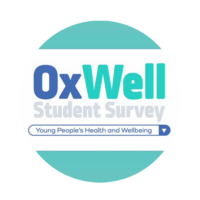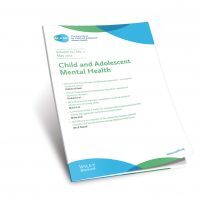Peer relationships
-

Trends in adolescent emotional problems in Wales between 2013 and 2019: the contribution of peer relationships
Open Access paper from the JCPP – ‘We tested change in emotional problems in a national sample of young people in Wales in 2013, 2017 and 2019 using identical symptom screens, and examined whether trends were accounted for by changes in youth friendship quality and bullying.’ Rebecca Anthony (pic) et al.
Read more -

Social connectedness and adolescent suicide risk
Open Access paper from the JCPP – ‘Despite evidence of the importance of interpersonal connectedness to our understanding of suicide risk, relatively little research has examined the protective and buffering effects of connectedness among adolescents.’ Alejandra Arango (pic) et al.
Read more -

Friendships and Mental Health: Insights from the OxWell Student Survey
The ‘Insights from the OxWell Student Survey‘ series is a new mini-in conversation series that will explore the OxWell study and the impact of its findings for parents, teachers, policymakers and mental health professionals.
In this episode, Tanya Manchanda comments on the friendship findings from the OxWell survey, including an insight into the impact of friendships on mental health outcomes and friendship interventions for young people.
Read more -

Insights from the OxWell Student Survey
Hosted by Clara Faria, ‘Insights from the OxWell Student Survey’ series is a new mini-in conversation series that will explore the OxWell study and the impact of its findings for parents, teachers, policymakers and mental health professionals.
Read more -

Narrative Matters: No teen is an island – the cost of finding a tribe through memes and TikToks
Paper from the CAMH journal – ‘This article considers how literacies are assembled when ‘reading’ memes and TikToks; how this impacts adolescents’ membership or otherwise of a group; and how a desire for group membership hampers other aspects of literacy when engaging with this kind of social media content.’ Andrew Duffy.
Read more -

Factors mitigating the harmful effects of intimate partner violence on adolescents’ depressive symptoms—A longitudinal birth cohort study
Open Access paper from JCPP Advances – ‘This study assessed the extent to which positive experiences were associated with depressive symptoms among children with and without experience of intimate partner violence.’ Dawid Gondek et al.
Read more -

Review: Digital experiences and their impact on the lives of adolescents with pre-existing anxiety, depression, eating and nonsuicidal self-injury conditions – a systematic review
Open Access paper from the CAMH journal 2023 Special Issue – “We review publications relating to anxiety, depression, eating disorders and nonsuicidal self-injury to identify common and condition-specific digital experiences and how these may be implicated in the origins and maintenance of these mental health conditions”. Katarzyna Kostyrka-Allchorne (pic) et al.
Read more -

Young people’s help-seeking behaviours: dealing with their own versus a friend’s symptoms of poor mental health
The majority of young people dealing with symptoms of poor mental health experience difficulties seeking help, adolescents are more likely to talk to their friends when experiencing symptoms of poor mental health
Read more -

Gender-specific pathways mediate the risk of substance use in adolescents with ADHD
Data suggest that children with attention-deficit/hyperactivity disorder (ADHD) are more likely to start smoking tobacco and/or marijuana earlier in childhood than unaffected children, and then escalate use during adolescence. Now, a study by researchers at the University of Minnesota has examined the mediating pathways underlying this association between childhood ADHD and later substance-abuse problems.
Read more -

A theory of youth mental health recovery
Mental health disorders have a negative impact on the individual, society and global economy. The prevalence of mental disorders is increasing in young people, and if unaddressed, research has shown that they may develop into severe and chronic illnesses. Despite this, research into youth mental health recovery is limited.
Read more